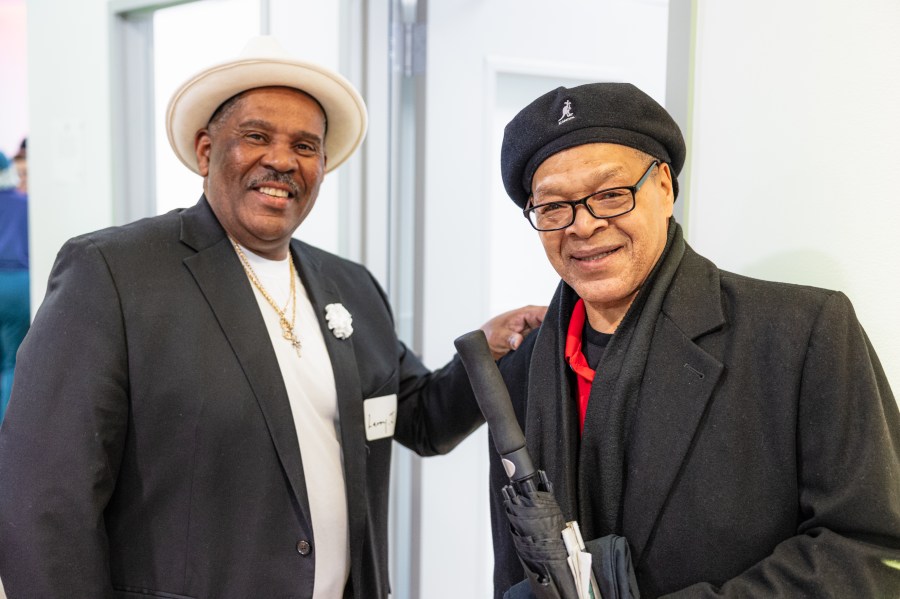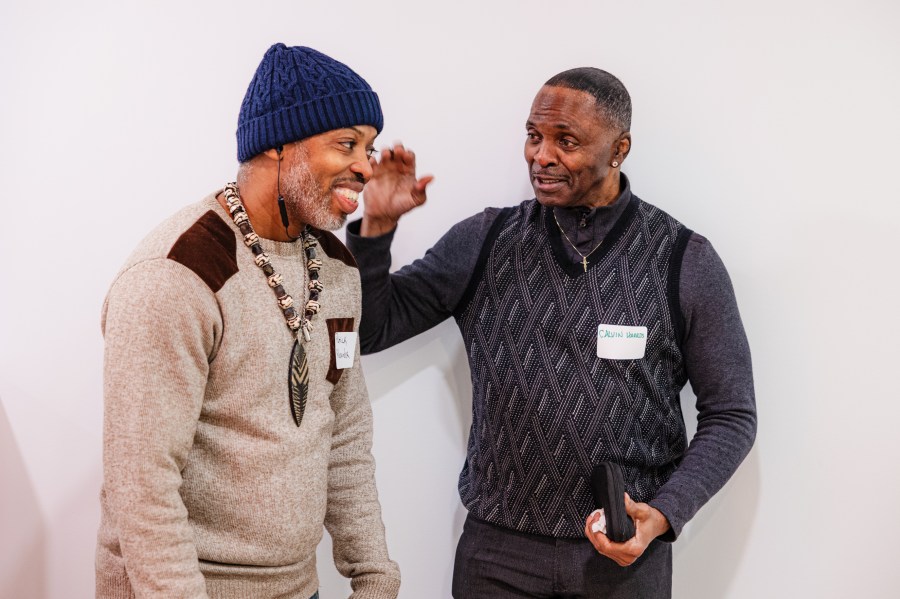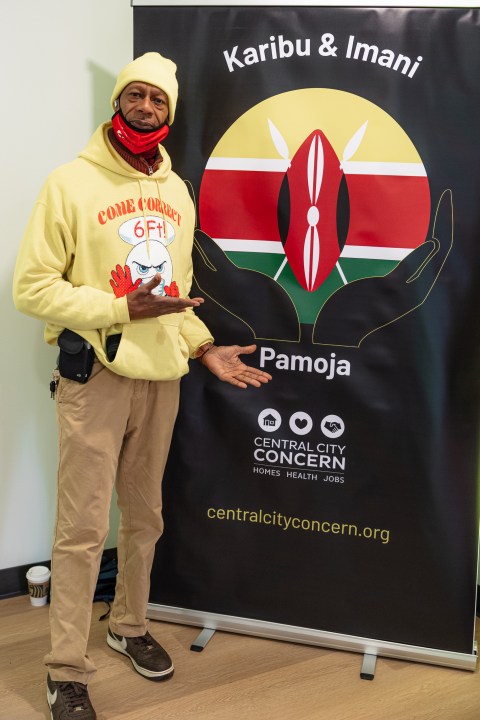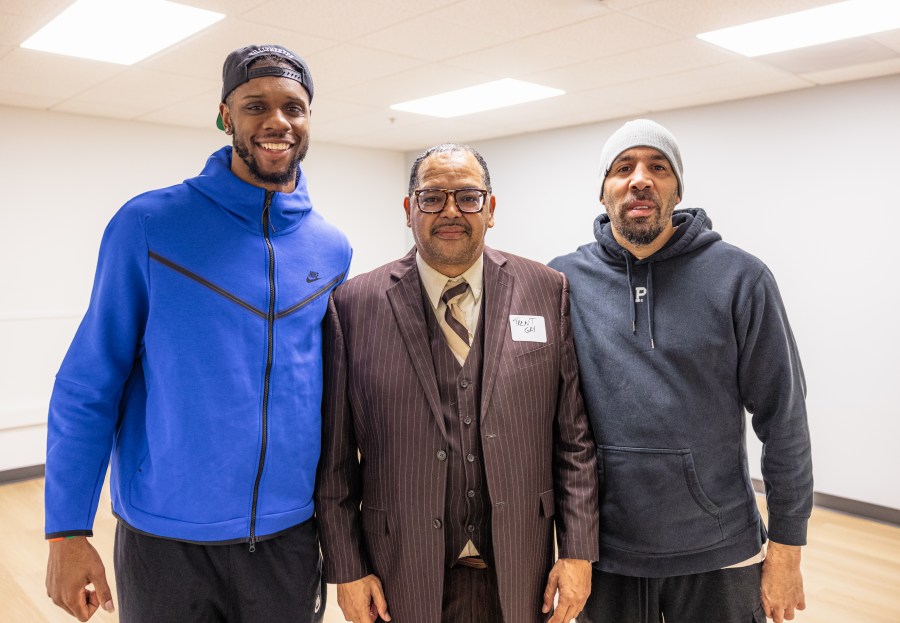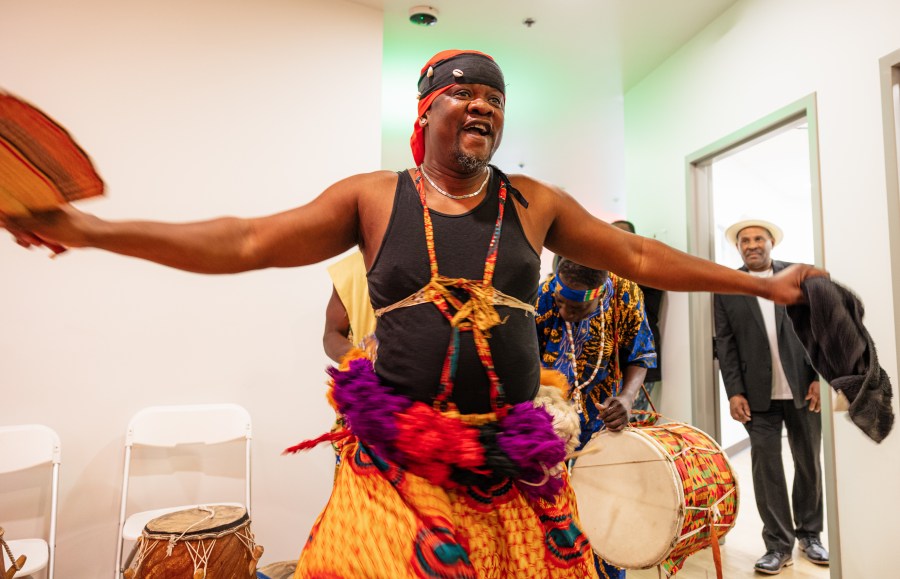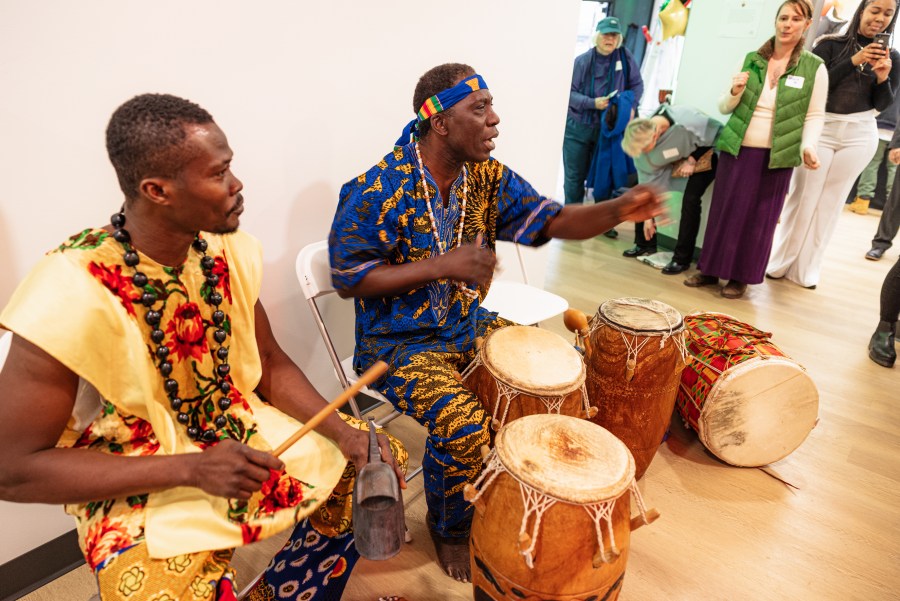PORTLAND, Ore. (KOIN) – Central City Concern, a Portland nonprofit dedicated to housing and transitional services, held an open house Tuesday for its newest project: Karibu.
The program will offer culturally specific stabilization and treatment services along with community care for Black and African American men who are involved in or at risk of becoming involved in the criminal justice system.
“I was excited for it all to come together and for us all to be under one roof together,” Karibu Program Manager Tori Smith said about the open house celebration. “It is a joy to finally get to this point. It’s been a long, long, long road.”

A long road that started back in October 2021, when Central City Concern first applied for permits at Southeast Powell Boulevard and Southeast 20th Avenue. It had planned to open the new program in spring of 2022, but city permits and building repairs made for progress slow.
Now, Smith is thrilled to finally see the building ready to use.
On Wednesday, the Imani Center, which will share the building with Karibu, was moving in and the building’s exterior was being painted.
The Imani Center provides mental health and addiction treatment for the Black and African American community in Portland and has been operating since 2015. It’s moving from Old Town to the new Southeast Portland location where it will be housed alongside Karibu.
Smith also serves as the interim director for the Imani Center. Having both programs under the same roof will make her job easier and will only strengthen the support the two programs will provide to Black people in the community.
“They have an individual that is able to work with them that looks like them. So, it’s easier to speak to that person that looks like you and understands your road, your path,” said Smith as she explained why culturally specific treatment is so important.
The new program Karibu will provide people support in two ways. First through its stabilization transitioning program. This program will have 14 transitional housing beds and will allow men to stay at the facility while they receive treatment for their behavioral health needs.
Participants can leave the program whenever they want to, but are allowed to stay 6-9 months, Smith said. The goal is to get people into permanent housing when they leave Karibu.
At Karibu, people will work on things like their mental health recovery, addiction recovery and other life skills.
The second arm of Karibu is its Community Care Team. This culturally specific outreach team works in the community with 30-35 clients at any given time. It will also work with Karibu clients to provide them group and individual therapy, case management, psychosocial skill development and more.
“We’re giving you an area to go to where someone that looks like you can actually help you and be there for you without a shadow of a doubt,” Smith said.
She said the majority of her team has lived experience that will be relatable for the people who come to Karibu.
Karibu will only accept clients who have been referred to the program. Smith expects most of these referrals will come from Multnomah County’s Behavioral Health Services or from the Department of Community Justice. Clients must be Black men who are 18 or older.
Karibu will serve as a transitional space where they can live before going directly back into the community.
Smith hopes it feels like a place clients can call home.
“They will be able to sit down, have meals together, movie nights together, fun activities together. There’s gonna be a lot of different things that they will be able to enjoy that they have not been able to do,” she said.
Smith said her programs do not turn their back on many people. This will be an open door to anyone who agrees to participate. After all, in Swahili, the word karibu means “welcome.”
Karibu is set to open sometime in mid- to late-March. At that time, Smith said they’ll start reserving the 14 beds for clients. Central City Concerns hopes to expand to 20 beds by the end of 2023.
Donate to Central City Concern
The non-profit is now accepting donations for its clients. Smith said people are welcome to give toiletry items or anything else they think might be refreshing for the men living at Karibu.

